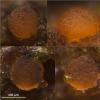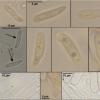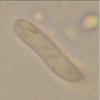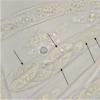
29-11-2024 21:47
Yanick BOULANGERBonjourJ'avais un deuxième échantillon moins mat

27-02-2026 17:51
 Michel Hairaud
Michel Hairaud
Bonjour, Quelqu'un peut il me donner un conseil p

27-02-2026 16:17
 Mathias Hass
Mathias Hass
Hi, Found this on Betula, rather fresh fallen twi

27-02-2026 12:56
Åge OterhalsFound on fallen cones of Pinus sylvestris in midle

27-02-2026 11:21
 Yannick Mourgues
Yannick Mourgues
Hi to all. Here is a specie that can may be relat

26-02-2026 15:00
Me mandan el material seco de Galicia, recolectada

24-02-2026 11:01
Gernot FriebesHi,found on a branch of Tilia, with conidia measur

23-02-2026 11:22
Thomas Læssøehttps://svampe.databasen.org/observations/10584971
Orbilia spec. 2
Gernot Friebes,
29-11-2009 12:59
It grew together with the first Orbilia on a branch of Rosa ca. 150 cm above the ground. The spores are 11-14 x 2.5-3.5 µm, often septate (also in living state and inside the living asci!) with one (rarely two) septa. The SB is 3-4.5 µm long, slightly curved to sigmoid. The Asci are 8-spored and up to 53 x 7.5 µm.
Best wishes,
Gernot
Jean-Paul Priou,
29-11-2009 13:56

Re:Orbilia spec. 2
forme des sspores +et Spore body + septation conforme pour setispora. la seule Orbilia septée Rosa semble être un nouveau support pour ce taxon..
Attendons la confirmation du Docteur es Orbilia.
JPP
Attendons la confirmation du Docteur es Orbilia.
JPP
Hans-Otto Baral,
29-11-2009 15:24

Re:Orbilia spec. 2
Hi Gernot
seems actually to be O. septispora as Jean-Paul suggests! On your ascus photos it is not clear because they are so small, but if you say they were septate inside the living asci, and up to 2 septate, it cannot be O. quaestiformis, the alternative which has also also mostly much more curved spores.
Originally I found O. septispora on Melilotus but in later years finds were mainly on Phragmites. However, we finally had it also on Typha, Juglans and Lonicera. So indeed a new substrate.
Please let me know the collection data.
Zotto
seems actually to be O. septispora as Jean-Paul suggests! On your ascus photos it is not clear because they are so small, but if you say they were septate inside the living asci, and up to 2 septate, it cannot be O. quaestiformis, the alternative which has also also mostly much more curved spores.
Originally I found O. septispora on Melilotus but in later years finds were mainly on Phragmites. However, we finally had it also on Typha, Juglans and Lonicera. So indeed a new substrate.
Please let me know the collection data.
Zotto
Gernot Friebes,
29-11-2009 15:42
Hans-Otto Baral,
29-11-2009 15:50

Re:Orbilia spec. 2
yes, the septa are clearly seen, only the ascus is perhaps not really turgescent (difficult to say), at least there is one spore at the very base, maybe the ascus base was broken. Perhaps the ascus was alive when unbroken, but this cannot be said with certainty.
i am quite sure you will find mature living asci when making a hand section.
Zotto
i am quite sure you will find mature living asci when making a hand section.
Zotto



